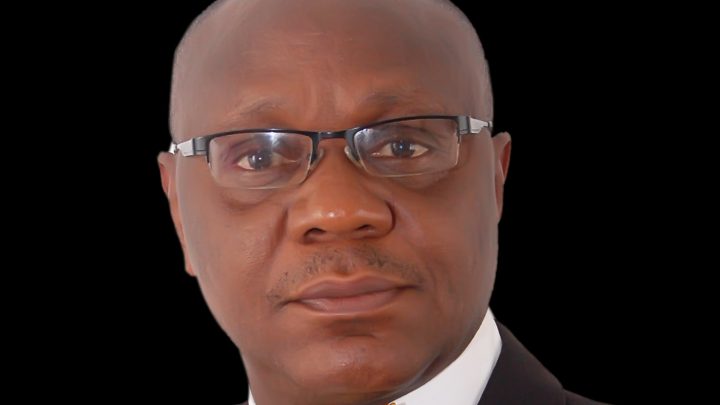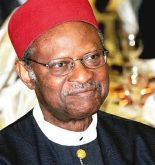Dogs have caused so much harm to humans and the two have had questionable relationships since prehistoric times, when wolves would follow humans on hunting trips and eat the crumbs from the catch.
These wolves, through the ages, eventually evolved into dogs, which have remained not only one of man’s most suspicious friends but also delicacies in many parts of the world.
Despite this, dogs have worked in a variety of jobs for humans. They work on farms where they patrol the property and round up animals like sheep and cows.
Dogs offer humans companionship and security as well, but researchers say that simply petting a dog can alter a person’s physical state and that could explain why man would kill, garnish, and eat it with relish.
The Ibibio of South-south Nigeria have an adage, “Owo isi waha uwa ndion abet usung ebaha ewa;” meaning, “No one sacrifices to the gods and locks the dog out.”
Perhaps, that is where the media thought it derived its watchdog concept and the constitutional power to monitor the activities of government.
The English Philosopher, Edmund Burke, who introduced the term in the late 18th century to refer to the immense power held by the press at the time might have thought he was wise and intelligent.
He had considered the media to be on par with the other three estates of power in British society, namely the Lords, the Church, and the Commons. But he was wrong.
Because of people like Burke, journalists have come to think that they have the power to expose abuse of government power and defend the citizens’ democratic and constitutional rights in their capacity as watchdogs.
They (journalists) also believe that in their so-called “watchdog” role, they could inform the public when an anomaly occurs, much like a real guard dog would when it sees an intruder and barks.
In Nigeria, journalists’ self-importance is further exaggerated because they mistakenly believe that the framers of the 1999 Constitution (as amended) gave them the power to hold the government accountable to the people.
What has deceived them is the provision of Section 22 of the Constitution which states: “The press, radio, television and other agencies of mass media shall at all times be free to uphold the fundamental objectives contained in this chapter (i.e. Chapter 2 of the Constitution) and uphold the responsibility and accountability of the government to the people.”
They are also deceived into thinking that Section 36 of the same Constitution provides for freedom of expression and that they can cover and write about just anything under the sun without let or hindrance.
The government consists of three separate but interrelated estates – the legislature, the executive, and the judiciary and nothing more.
Thinking they have a preeminent role to play in upholding the responsibility and accountability of the three estates to the people, they dubiously arrogated to themselves the position of the fourth estate of the realm.
This ill-conceived notion of the Fourth Estate was hatched in 1821 by a certain Thomas Carlyle in his book, “On Heroes and Hero Worship,” which also cited Edmund Burke as saying, “In the Reporters’ Gallery yonder, there sat a Fourth Estate more important and far than they all.”
The implication was that the media, and particularly journalists, are as important as the presidency, which administers the executive arm, the lawmakers who sit in parliament, and the judges who administer the courts.
However, these ideas are ostentatious and utopian, and can only apply in societies where there is no respect for the constitution or the fundamental rights of citizens.
In fact, both Burke and Carlyle and many other naive thinkers and scholars also pointlessly and superciliously advocated that democracy can be seriously imperiled when one estate encroaches on or limits the responsibility of another.
Apparently, the highly respected Chief Judge of Akwa Ibom State, Ekaette Obot, knows that allowing the foolish ideas of Burke and his ilk would endanger the third estate of the realm and destroy the sanctity of the courts in the state.
In her audacious defence of the courts against the so-called Fourth Estate, she had on July 27, 2022, not only ordered one Saviour Imukudo, out of her court but also asked the police to detain him for daring to record proceedings.
In a previous sitting, Mrs. Obot allegedly threatened to put a lawyer, Augustine Udo, in jail and reprimanded him for bringing an herbalist to record her court proceedings.
Mr. Udo had committed many sins, such as standing in for a self-described human rights activist and public nuisance, Inibehe Effiong, and drawing attention to an application for His Lordship’s recusal from a major case before the court.
That “herbalist” who besmirched the holy temple of justice is Mr. Imukudo, a Premium Times reporter, whose name literally means, “a brief second son.”
You can see that even the name of the reporter gave him out as a potential herbalist who had no right under the law to carry his evil tools of trade into the revered courtroom.
But what is more irritating is that Mr. Effiong, in his inane insolence had asked His Lordship to withdraw from a libel case involving Governor Udom Emmanuel and Senator Effiong Bob against one Leo Umana, a lawyer and celebrated abuser.
Mr. Umana was said to have praised Messers Emmanuel and Bob for using billions of taxpayers’ funds to impoverish the judges of an election tribunal in the state.
It was surprising that Mr. Umana, who was hitting former Governor Godswill Akpabio with scud missiles for making Mr. Emmanuel his successor would suddenly switch loyalty and become the megaphone for the bishopric of Uncommon Transformation.
The basis for the application to recuse from the case of the loudmouth is absurd and laughable because only a lunatic would criticise a judge for eating and drinking with a party whose case is before her court.
Mr. Effiong was distraught over the fact that Mr. Bob had innocently invited His Lordship to his daughter’s wedding, just as he had done with other close family friends, and the judge had graciously accepted.
His Lordship did not only attend the wedding in his (her) private capacity but was recognised in her official capacity and invited to the high table.
No one should stick their dirty noses into what the chief judge does outside of court; after all, she is free to attend public functions just like any other citizen.
On the same day the Brief Second Son; you can also call him herbalist, was ordered out and detained, His Lordship was in her best of moods and had vowed to deal “Wotowotociously” with anyone who would tickle the court.
And the court did that very well.
Armed policemen were first brought into the courtroom to ensure the herbalist was locked outside and would not perform his usual sorcery in the name of a news report.
They had other assignments inside the court and would not withdraw after discharging Brief Second Son and the court did not ask them to leave.
That raised the blood pressure of cantankerous lawyer Effiong, and he started running like a wild animal inside the courtroom to the consternation of all right-thinking and crooked men and women in the court.
His Lordship must act fast before Mr. Effiong’s plodding lunacy would push him to vandalise the court and attack peace-loving counsels, litigants, and suspects.
Without willing to let the opportunity to make history slip by, the court hastily wrote a ruling, ordered the rights activist to strip and the armed policemen to escort him to jail.
Mr. Effiong was still reeling in the empty euphoria of his self-importance when His Lordship hit the gavel like a thunderbolt and the court thundered, “As the court pleases.”
The country exploded in a babel of tongues with many hailing His Lordship for finally sending the troublesome lawyer to jail so he could take desperately needed lessons in humility before the court.
Others argued that the court violated the fundamental rights of Mr. Effiong and vowed to sacrifice the chief judge on the altar of their anger.
But that was not the end of the story. Mr. Effiong was given the baptism of fire when he was suddenly ordered to be transferred from Ikot Ekpene Correctional Centre to the Correctional Centre in Uyo.
The officials who escorted him gave him a very very important personality treatment (VVIP) by handcuffing him and bundling him like a criminal and a convict (which he is) into a waiting truck.
As soon as he was brought to Uyo, the cantankerous lawyer was given a Delilah treatment, but unfortunately, his powers are not in his public and “unpublic” hairs.
The court may have succeeded in taming Mr. Effiong and chasing an herbalist of a reporter away from the courtroom, but the end has not been heard of the sordid encounter.
Currently, Nigeria’s human rights community, the Nigerian Bar Association (NBA), the Nigerian Labour Congress (NLC), and many others are shouting from rooftops for the head of the judge to be served on a platter.
On the other hand, Uwemedimo Nwoko, a senior advocate of Nigeria (SAN) is leading the praise and worship band for the judge.
The real battle will begin today, August 26, as Mr. Effiong comes out of prison, breathes, and walks-through Barracks Road to freedom.




